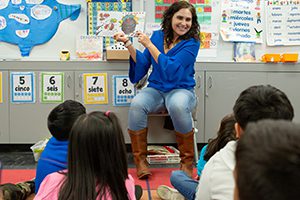How We Think About Teaching
An interesting article in last week’s New York Times Magazine, “Why Do Americans Stink at Math?” identifies several principal problems of American teaching: Teachers, as a general rule, do not:
- observe their colleagues teaching,
- discuss the science and craft of teaching with their peers and experts, or
- get much support to improve instruction from either their principals or the textbooks they use.
(In The Huffington Post this week, I talk about how startling that lack of collaboration can be to folks who come into education from other fields.)
The article — adapted from Elizabeth Green’s forthcoming book — is shaped around a discussion of Common Core math standards, but it is really about how we think about teaching. She contrasts the way American teachers work with the way Japanese teachers continually observe each other’s lessons, talk through problems of instruction, and even do play-by-play commentary of children’s misunderstandings and how they can be used to propel learning. Through this process, she relates, math instruction has been transformed for the better in Japan in just a couple of generations, while we are still mired in decades-old disagreements about how to teach it.
Her final two paragraphs are worth repeating:
Most policies aimed at improving teaching conceive of the job not as a craft that needs to be taught but as a natural-born talent that teachers either decide to muster or don’t possess. Instead of acknowledging that changes like the new math are something teachers must learn over time, we mandate them as “standards” that teachers are expected to simply “adopt.” We shouldn’t be surprised, then, that their students don’t improve.
Here, too, the Japanese experience is telling. The teachers I met in Tokyo had changed not just their ideas about math; they also changed their whole conception of what it means to be a teacher. “The term ‘teaching’ came to mean something totally different to me,” a teacher named Hideto Hirayama told me through a translator. It was more sophisticated, more challenging – and more rewarding. “The moment that a child changes, the moment that he understands something, is amazing, and this transition happens right before your eyes, he said. “It seems like my heart stops every day.”





